How Trump obliterated norms and changed the presidency
Trump made the presidency all about him.
President Donald Trump's four years in the White House were marked by an unconventional, norm-busting approach to the country's institutions that will likely outlast the one-term leader, leaving a transformative and divisive legacy in Washington.
His brazen attempts to overturn the election that he lost, including encouraging his supporters to "fight like hell" and march to the Capitol, where they launched an insurrection just before he was set to leave office, capped a tumultuous tenure where critics say Trump repeatedly chipped away at the bedrock of American democracy.
From his earliest days as a candidate, through his attempts to subvert the 2020 election, the New York businessman-turned reality TV star reshaped the presidency to center on him to a degree unlike any of his predecessors, exploiting the country's deepening divisions and fears and demanding loyalty above all else.
Seemingly impervious to scandal, he gained a legion of devotees to his "Make America Great Again" mantra and its winner-takes-all, no-holds-barred approach that sidelined the Republican establishment and recast the party in his image.
The MAGA movement, fueled by massive rallies and an unrelenting social media blitz, helped him to pull off an improbable victory in 2016 with narrow margins in key states, despite losing the popular vote by nearly 3 million.
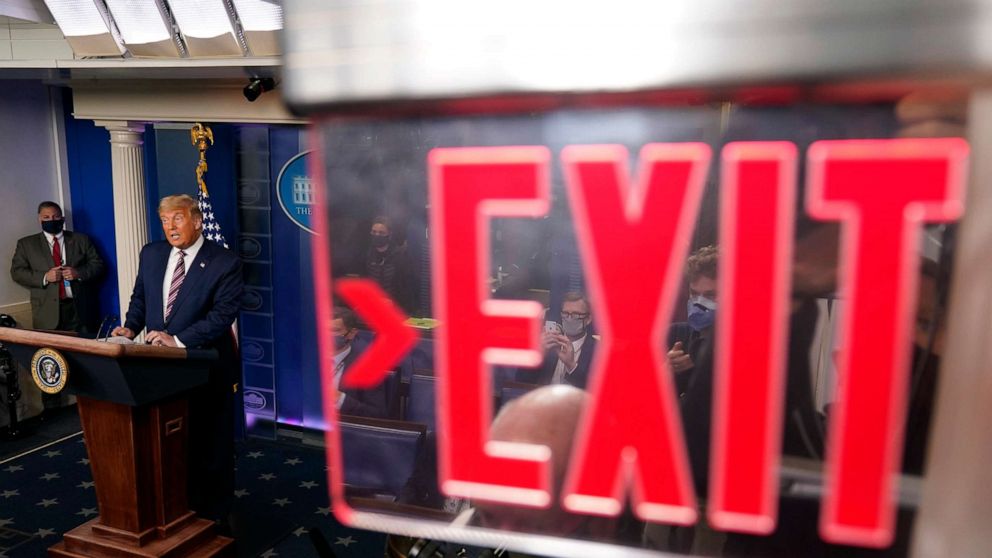
Trump gave a voice to many -- largely white, working class voters -- who felt they had been silenced or overlooked over the years, and focused his efforts on cultivating that base -- the "forgotten men and women of our country" as he said in his inaugural address.
A political outsider who prided himself on being a negotiator, he won key legislative victories such as tax cuts, trade deals and criminal justice reform. He also relied on executive actions and pressure tactics to cajole allies and foes alike.
Becoming the first president to be impeached twice reflected his unique approach to the presidency. In both instances, he was accused of using the powers of his office to try to cement his place in the White House -- in one case, by inviting foreign interference, and in the second, almost unthinkable case, by inciting an insurrection; he denied both charges.
Throughout it all, Trump governed with a brash, unorthodox style in which he emphasized his personality and relationships, at once energizing and alienating the American electorate.
The Twitter president battles with truth
While it is not uncommon for politicians to find themselves preoccupied with optics and media coverage, Trump used the chaos he caused -- and his endless penchant for commenting on nearly all matters -- to command attention in an unprecedented manner.
Embracing social media, he spoke directly through Twitter, issuing threats, insults, praise, directives and commentary to everyone from the public to prime ministers. The access to his thoughts around the clock helped build his loyal fan base -- he reached more than 88 million followers -- and also gave unprecedented insight into what a sitting president of the United States was thinking, virtually at any moment.
Trump could be a king-maker or bring down the guillotine on friend or foe alike with the touch of a button and many times, no one knew when he was going to strike, giving staffers grief.
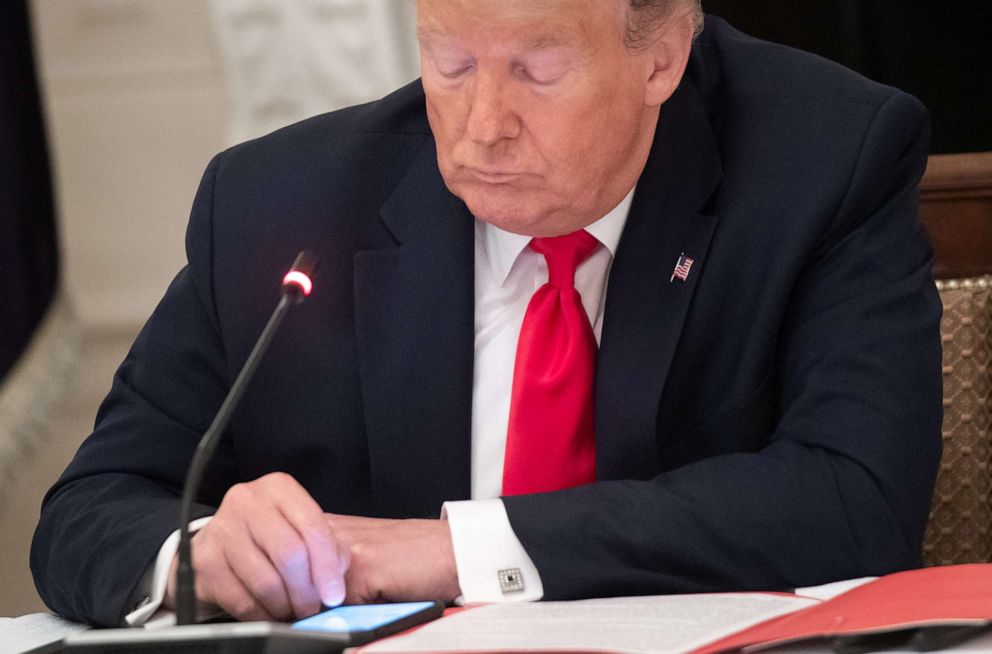
Trump sometimes fired his Cabinet secretaries with tweets, from former Secretary of State Rex Tillerson to Defense Secretary Mark Esper.
Sometimes, he would issue policy directives via Twitter, such as in 2018 and again the following year, when he threatened to close the U.S.-Mexico border, or in 2017, when he announced he would ban transgender people from serving in the military (the restrictions took effect two years later).
Trump often traded in falsehoods on social media, where he could communicate relatively unchecked, but during his final days in office, he took that to a new level, elevating fringe conspiracy theories and spreading disinformation to his tens of millions of followers on Twitter and Facebook, in an attempt to create an alternative "reality" more favorable to him than the one covered by mainstream media outlets.
While other presidents have had strained relationships with certain news outlets or reporters, Trump took his grievances with the media to new levels, consistently labeling any report he didn't like "fake news," taunting journalists and calling the mainstream press the "enemy of the people."
That approach was emblematic of how his administration and allies treated facts and fact-checks -- as objects that could be molded in the crucible of the social media echo chamber.
It was his push to overturn the election despite no evidence of widespread fraud -- and his support of a violent, pro-Trump mob that stormed the Capitol on Jan. 6 -- that finally pushed social media platforms to step in. Trump has since disavowed the violence but refuse to take responsibility for any of what happened at the Capitol.
Twitter permanently suspended his account and Facebook and Instagram blocked him from posting through President-elect Joe Biden's inauguration. YouTube suspended him for a week, and several other companies took action, too.
Without Twitter, Trump spent his final days in office without a large social media following to whom he could fire off quick missives and retweet the baseless conspiracy theories that embodied the end of his presidency.
Divider-in-chief
Trump's unique style has endeared him to many, as was evidenced by the crowds of thousands at his "Make America Great Again" campaign rallies and core backers' steadfast willingness to support him no matter how much his positions morph. He unequivocally venerated law enforcement, veterans and the military and appeared to ignore criticism around police in particular (although he never uttered a word about the officer who died in the Capitol siege).
"We want to get along with everybody, and we will," he pledged at a campaign rally in 2016. "We're going to unite the country."
But while candidate Trump had pledged to bring Americans together, in practice, he usually did the opposite: uniting his base at the expense of the rest of the country.
Trump often lamented the condition of cities and the work of Democratic mayors and governors and blamed "blue states" for crime and even the state of the coronavirus pandemic.
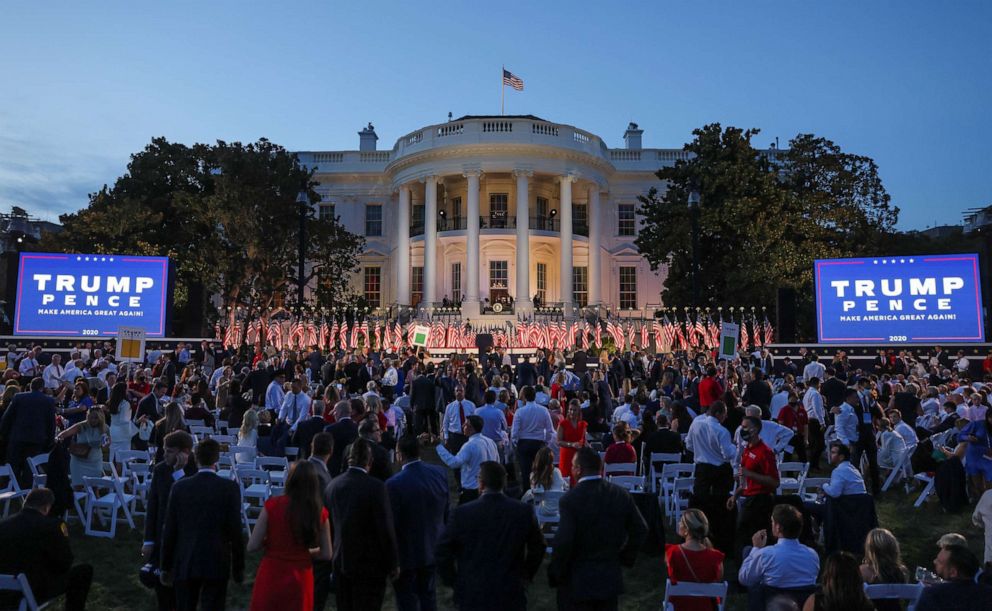
From the earliest days of his campaign, and throughout his presidency, the president courted controversy by staking out extreme positions, belittling political opponents and women and stoking racial and ethnic divisions.
After coming down the escalator in Trump Tower to announce his candidacy in 2015, he declared the American dream "dead" and said Mexico was sending "people who have lots of problems" and "rapists" to the U.S.
Trump has made immigration a focus of his administration, and taken a particularly divisive tack. He called for a ban on Muslims entering the U.S. under the pretext of stopping terrorism, building a wall on the southern border, ending sanctuary cities and most controversially, separating families at the border.
He long espoused and touted the racist "birther" conspiracy theory about President Obama, failed to denounce white supremacists and militias and regularly used the word thug and hinted at violence against Black Lives Matter protesters.
Despite months of protests over racial justice, fueled by the death of George Floyd at the hands of Minneapolis police, Trump did not acknowledge the reasons for the uprising, only lamenting that there was looting and vandalism in cities.
Still Trump touts the economic gains he says he helped engender for African Americans, landmark criminal justice reform that reduce mandatory sentencing and building a new coalition of young Black supporters of the Republican party.
The division he encouraged hit a fever pitch in the final months of his presidency, as he sowed doubt in the electoral process and refused to accept the reality that he lost. Instead, he convinced most of his supporters the system was rigged against him, potentially undermining faith in the electoral process for years to come, despite there being no evidence that was the case – and despite he and his allies failing over and over in court as they challenged the results. He never retracted his lie that there was widespread electoral fraud, and he never called Biden to congratulate him on his win.
Trump has been one of the most unpopular presidents in modern U.S. history. His career average approval rating is the lowest for any president in modern polling, back to 1939, and he is the first president in that time never to achieve majority approval at any point.
The same polls have also highlighted the chasm between how Democrats and Republicans see him, with Republicans typically widely approving of him and his actions, distinguishing themselves from Democrats and Independents.
In the wake of the attack on the Capitol, Trump was set to leave office with just 38% of Americans approving of his job performance, according to an ABC News/Washington Post poll released Friday. Sixty percent disapproved, matching an all-time high for him.
Failure to drain the swamp
Elected in 2016 in one of the most stunning political upsets of modern U.S. history, Trump had promised to "drain the swamp" in Washington.
But rather than drain the swamp, critics say he brought ethical compromise and alleged corruption to new heights, charges Trump has long sloughed off.
Trump long-resisted divesting himself of his myriad business interest, instead opting for a "separation" that put his business interests in a trust operated by his family. And unlike prior presidents, he has refused to release his tax returns, citing an ongoing audit.
The president has visited one of his company's properties -- either owned, managed or branded -- nearly one in three days of his presidency, often to play golf, according to a New York Times count and his recent travel. Doing so offers them free publicity and forces the government to spend money there, especially when he frequently stays overnight.

Trump appointed his daughter and son-in-law to key, unpaid White House positions, held numerous closed-door fundraisers with high-dollar donors, and lent his ear to wealthy members of his private clubs -- such as Mar-a-Lago, in Palm Beach, Florida -- who have lobbied him on an array of issues. The administration broke with precedent and refused to make the White House guest list publicly available.
While other presidents have hosted fundraisers and appointed family members to key positions, ethics experts have called Trump’s approach “unprecedented.”
His administration ignored the Hatch Act, a federal law that prohibits executive branch employees from engaging in political activity while in office, with one top adviser openly mocking it when she was found to have violated it.
The president himself has blatantly used his public office in unprecedented ways to benefit himself politically.
Trump spent years turning official events into opportunities to go on political rants, attacking Democratic opponents and frequently blasting his typical campaign music playlist, ignoring limits on taxpayer money being used for political ends.
His obliteration of the traditional -- and to some degree, legal -- separation between his official and political duties hit an apex this summer when he hosted a crowd of people at the White House for the Republican National Convention, accepting his party's nomination just steps from the building.
Demanding loyalty, reshaping the judiciary
Throughout his presidency, Trump tested the strength of loyalty to him by demanding others to bend to his outlandish, and sometimes illegal, requests. If they didn’t fall in line, they fell out of favor.
His latest push was to pressure one of his staunchest supporters, Vice President Mike Pence, to use his position as president of the Senate to reject Electoral College votes that would make Biden's win official.
Pence did not do so, and despite the fact that the law did not actually afford him that power, Trump lashed out at his vice president. The president's supporters chanted "Hang Mike Pence!" as they stormed the Capitol.
The president also flipped on Senate Majority Leader Mitch McConnell when McConnell finally accepted Biden as the president-elect after weeks of silence about the election results. McConnell and Trump's relationship faltered further after the insurrection.
House Minority Leader Kevin McCarthy also fell out of favor with the president -- despite years of solidly backing Trump -- after he said the president bore responsibility for the mob attack and suggested censuring Trump – even though McCarthy ultimately voted against impeaching the president.
Members of Trump's own Cabinet were not safe from his loyalty checks either.
Early in his presidency, Trump attacked then-Attorney General Jeff Sessions for not doing enough to end the investigation into Russian interference in the 2016 election -- led by special counsel Robert Mueller and labeled a "witch hunt" by the president -- and for not pursuing Trump's own investigative imperatives. Trump then torpedoed Sessions' Senate candidacy in Alabama.
"This is what happens to someone who loyally gets appointed Attorney General of the United States & then doesn’t have the wisdom or courage to stare down & end the phony Russia Witch Hunt," Trump said in March. "Recuses himself on FIRST DAY in office, and the Mueller Scam begins!"
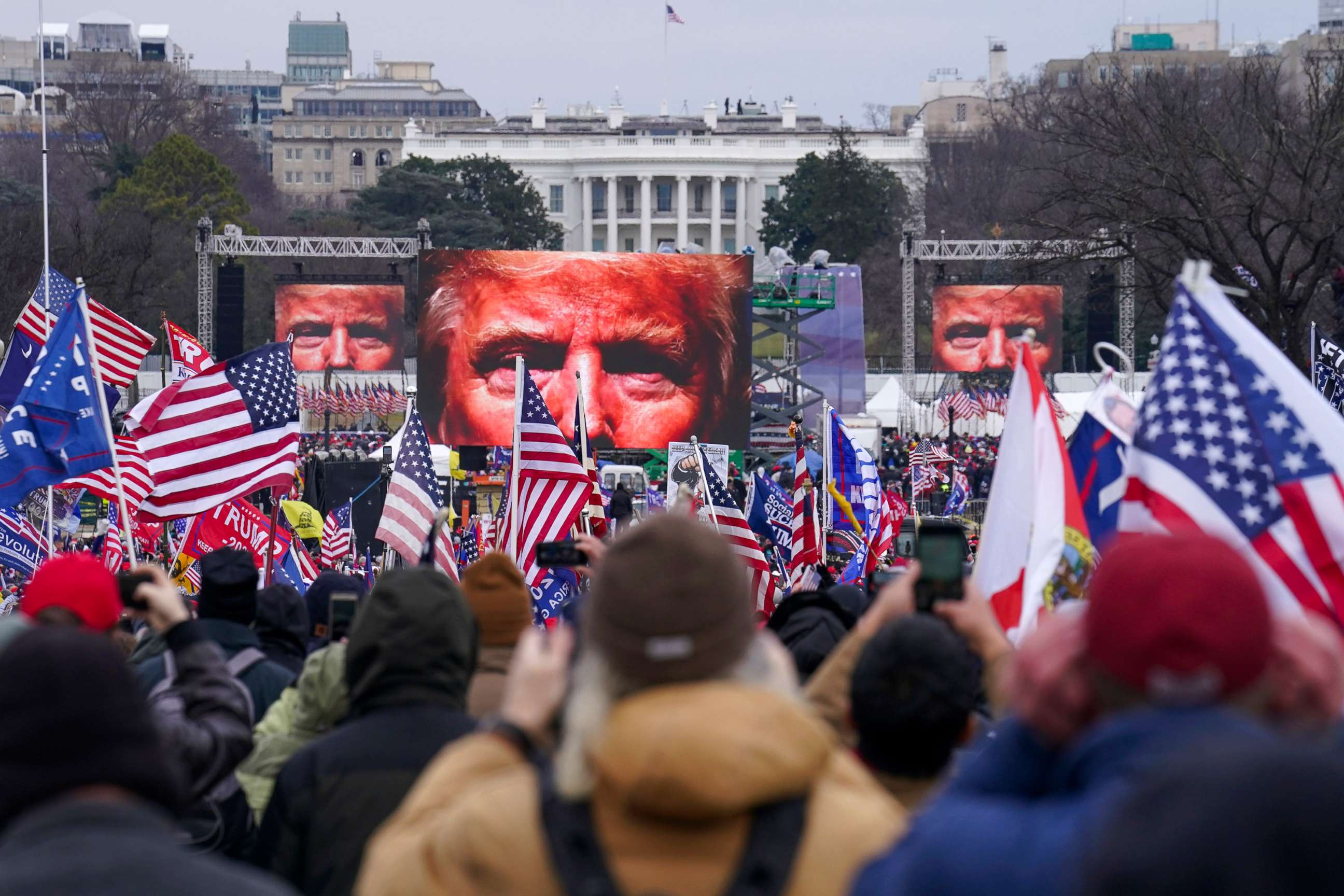
Trump even requested unwavering allegiance from leaders of the Justice Department, flouting the agency's tradition of independence from the White House.
The former director of the Federal Bureau of Investigation, James Comey, told Congress in 2017 that Trump had asked him for "loyalty" a dinner and in a later one-on-one meeting in the Oval Office, and that Trump pressured him to end an investigation into a former U.S. national security adviser, Michael Flynn. Trump denied the accusations.
Meanwhile, Trump reshaped the federal judiciary by filling over one quarter of judgeships with the help of a Republican-controlled Senate.
He saw three of his Supreme Court nominees confirmed, but even they were not above his transactional view of Washington. Before the 2020 election ended, Trump suggested he would need the Senate to move fast on his final nomination so that they could weigh in on his baseless allegations of electoral fraud. None of those allegations were substantiated and none of Trump's legal challenges to the final tally were successful.
"You're going to need nine justices up there," he said in September. "I think it's going to be very important."
'A very stable genius'
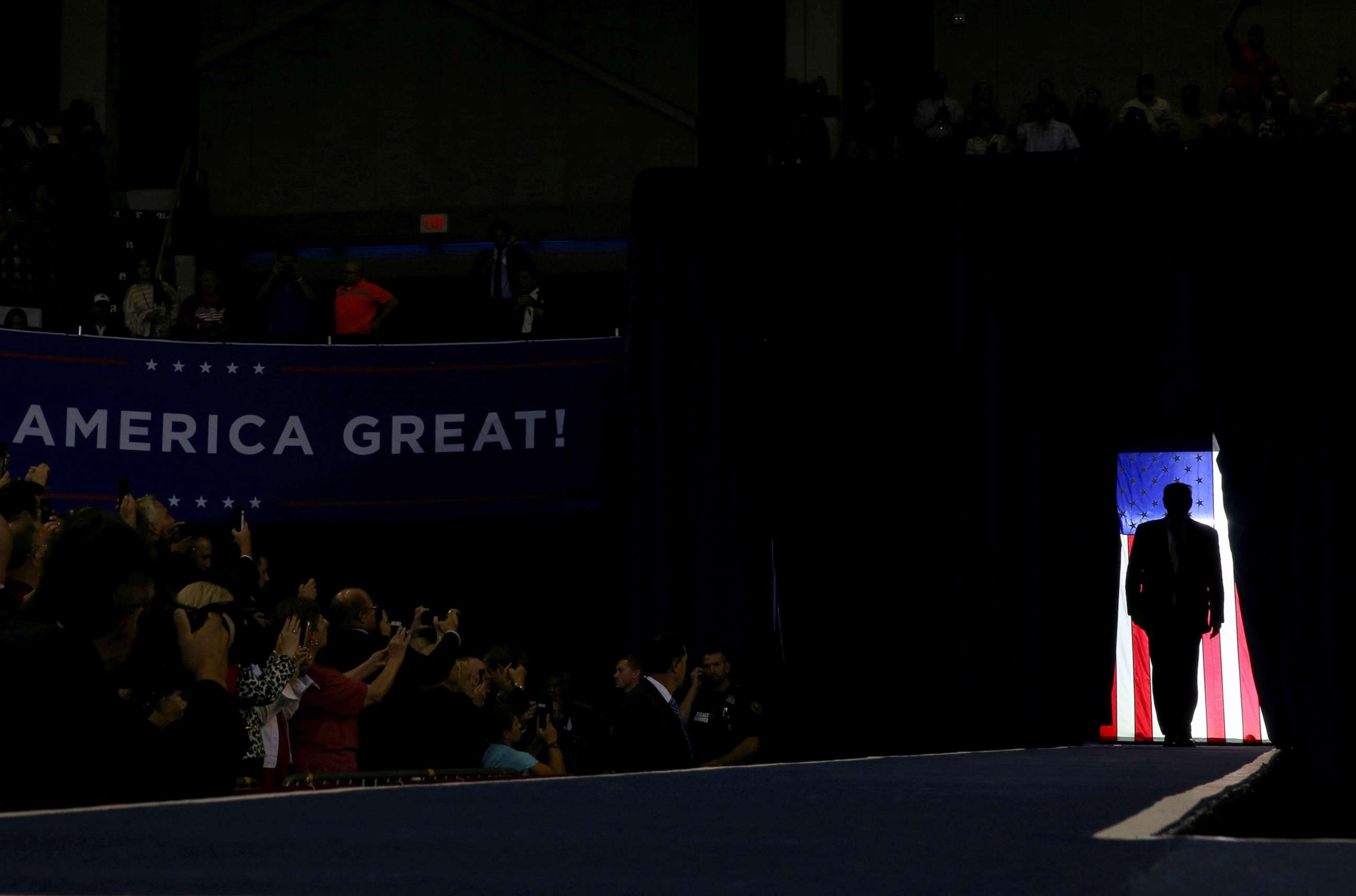
Trump's erratic behavior and penchant for chaos lent credence to those who questioned his mental stability from day one, including opponents who raised the question of whether the vice president and cabinet members should at some point invoke the 25th Amendment and strip Trump of his powers.
After he encouraged his supporters to "fight like hell" and march to Congress on Jan. 6 -- then waited hours to ask them to leave the Capitol -- the House of Representatives passed a resolution calling on Pence to convene the Cabinet and invoke the 25th Amendment. Pence declined.
While he is not the only mercurial president to occupy the Oval Office, Trump's term was marked by persistent reports of his angry, fuming moods in the Oval Office and White House residence. His Twitter feed often betrayed his mood, as he aired grievances publicly -- often late at night, or early in the morning.
Never one to shy from negative coverage, in 2018, the president posted an unprecedented defense of his own mind, tweeting that Democrats were "screaming mental stability and intelligence." He wrote that "throughout my life, my two greatest assets have been mental stability and being, like, really smart."
He said his rise from the business world to entertainment -- and ultimately, the presidency -- made him, in his view, "not smart, but genius....and a very stable genius at that!"
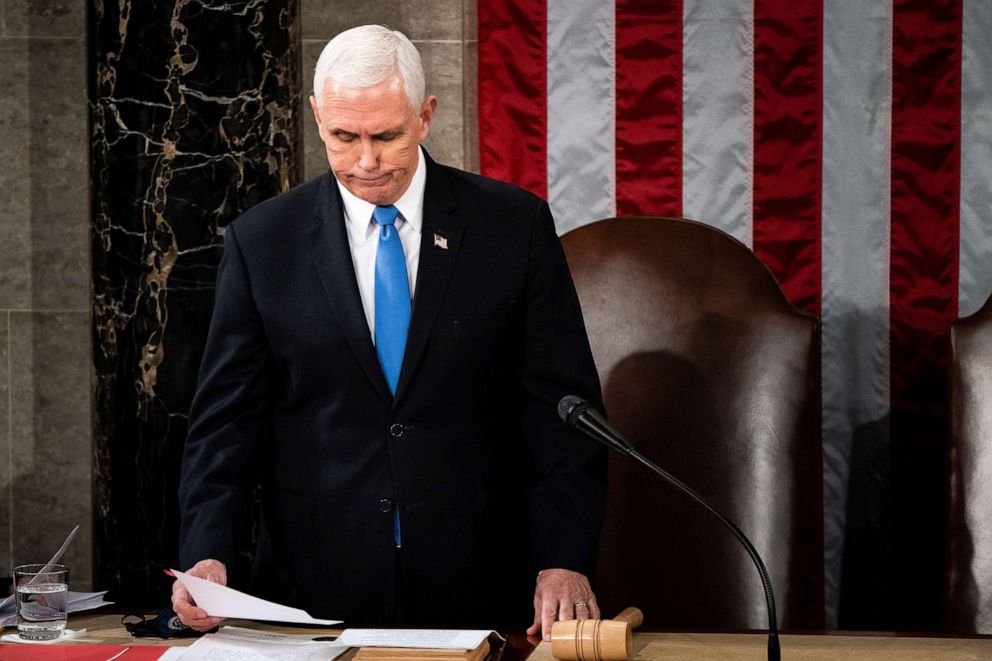
In fact, Trump had shot to fame by branding himself as a successful businessman -- despite at times evidence to the contrary.
Given to hyperbole throughout his life, he took his meteoric claims to new heights from his presidential perch.
He frequently compared himself to President Abraham Lincoln, who abolished slavery and is considered one of the greatest American leaders in history.
"I've said that with regard to African American, the Black community, I've done more than any other president with the exception of Abraham Lincoln," Trump boasted in November. "And sometimes I say with the possible exception of Abraham Lincoln, but let's give him a lot of credit, right?"
In a way, he treated the presidency like the television show he hosted, "The Apprentice." He ensured he was the center of attention, as his advisers and staffers vied for influence and favor -- and leaders in Washington and worldwide scrambled to react.
Critics said his actions and words reflected a fragile ego coupled with longstanding insecurities.
Either way, Trump made the presidency all about him.
ABC News' Elizabeth Thomas and Gary Langer contributed to this report.
This report was featured in the Tuesday, Jan. 19, 2020, episode of “Start Here,” ABC News’ daily news podcast.
"Start Here" offers a straightforward look at the day's top stories in 20 minutes. Listen for free every weekday on Apple Podcasts, Google Podcasts, Spotify, the ABC News app or wherever you get your podcasts.



